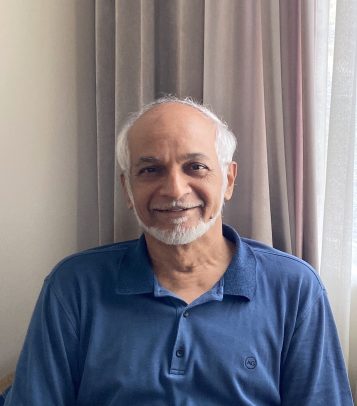University Scholar Rashid Ansari
The University Scholars Program, now in its 35th year, honors faculty members for superior research and teaching, along with great promise for future achievements. The award provides $15,000 a year for three years.

Rashid Ansari
Professor of electrical and computer engineering
Years at UIC: 25
What are your research interests?
My research interests are in the theory, algorithms and applications of processing of signals, images and video. This includes analysis, modeling, manipulation and communication of signals. A major thrust of my research is on interdisciplinary topics dealing with engineering and health care disciplines.
How did you become interested in these topics?
I have enjoyed analytical work with practical applications, and this led to me do research on signal, image and video processing with applications in health care. Research problems that deal with processing of signals, images, and video have always interested me, and there are many challenging research problems on these research topics related to health care disciplines. The interest was strengthened out of reaching out to researchers in other fields. Sometimes this collaboration can come out of a lunchtime conversation at a campus-level meeting. I recall a conversation at an all-campus promotion and tenure committee meeting which led to collaborations and later to grants and joint publications. I have been fortunate to collaborate with experts in ophthalmology, nursing, radiology, neurology, dentistry and physical therapy addressing issues in signal, image and video analysis.
What do you teach?
I teach courses on digital and statistical signal processing, image processing and computer vision. I have also taught courses in probability and communications.
How do you balance teaching and research?
The schedule that I follow for creating a balance between research and teaching depends on whether I teach one course or two in a term. My general rule is to limit teaching responsibilities to teaching days with office hours right after last class. Since I attach importance to positive student experience in class, I devote time in the evening before class to see how I can include that element in my class. My research, however, is spread out over the week, including evenings, giving me flexibility. Regarding research meetings with students, apart from the regularly scheduled weekly meetings, my research advisees and I find it convenient to discuss research in the evenings via Skype and Zoom, especially so after the onset of the pandemic. Overall, the time split is skewed towards research. When I was department head, it required a more careful balancing act when I was also teaching a course.
What’s your advice to students who want to focus their future careers on research?
It is important to be willing to venture out of one’s comfort zone and take courses and attend seminars outside your discipline especially in view of the growing importance of interdisciplinary research. A challenge is to keep up with the growing knowledge in every field. Invest time in reviewing latest literature from key resources in your field — in engineering, this may require focus on the latest papers from top conferences and manuscripts on Arxiv. There’s a lot of benefit in being open to criticism and use the criticism to learn and grow. Keep focus on quality and impact. And of course, enjoy life outside work. For undergraduates, my advice is that they avail of any opportunity to get early experience in research and see how much fun and excitement there is in research.
Categories
